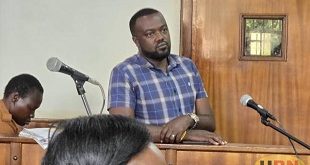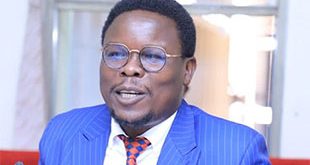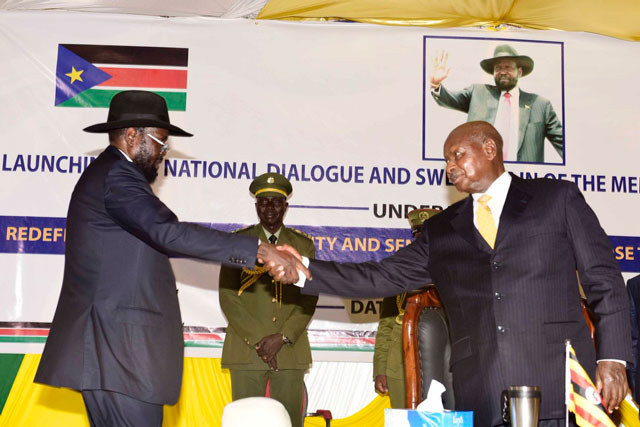
KIIR: Everybody is welcome to participate in the national dialogue except Riek Machar. Riek Machar will come and cause another war in Juba
Juba, South Sudan | AFP | South Sudan’s President Salva Kiir declared a unilateral ceasefire Monday as he launched a national dialogue, a controversial bid to end a civil war that excludes his rival Riek Machar.
It is not the first time Kiir has vowed the army will lay down arms in the three-year conflict, and he warned that his troops would defend themselves if attacked.
“I am also once again declaring a unilateral ceasefire effective from today, so that we can create an environment for an inclusive dialogue and so that we can transport humanitarian aid to famine struck areas,” Kiir said at the opening of the national dialogue.
However he told army commanders “you have the right to defend yourself”.
A 94-member steering committee was sworn in “to conduct consultations as widely as possible to give the people of South Sudan (a chance) to air out their views and aspirations to restore peace in their country.”
The process — first announced in December — has been hampered by financial constraints as well as disagreements over the set-up of the steering committee.
Kiir himself will be overseeing the dialogue, a fact which has drawn criticism from opposition groups and activists, and has refused to have his foe Machar take part.
South Sudan has been at war since December 2013 when Kiir fell out with Machar, accusing him of plotting a coup.
“Everybody is welcome to participate in the national dialogue except Riek Machar. Riek Machar will come and cause another war in Juba,” said Kiir.
“But if he has a delegation … let them appoint these people to come to Juba. We guarantee their safety and so that they don’t fear their lives.”
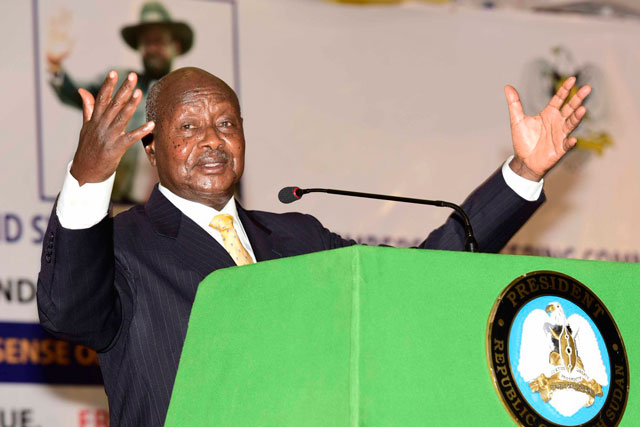
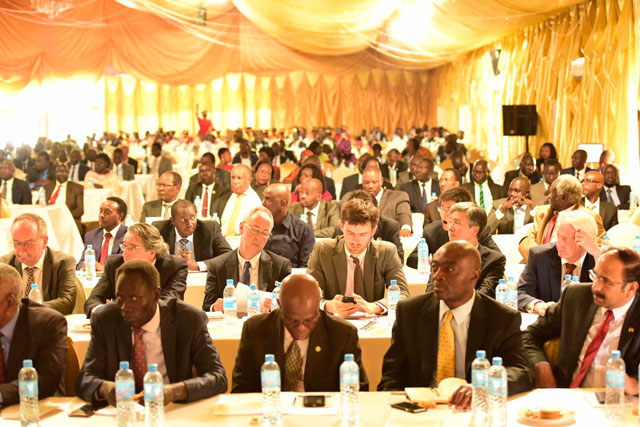
Three years after the power struggle led to war in the world’s youngest country, a peace deal signed in 2015 is in tatters, and all efforts to end fighting have failed.
The conflict has evolved beyond the two main protagonists, breaking down along ethnic lines and drawing in different actors and local grievances.
“A national dialogue could be critical in ensuring a representative discussion of the major issues that affect South Sudanese and on the way forward for the future,” said Amanda Lucey, a peace building researcher at the Pretoria-based Institute for Security Studies.
“However, there are serious concerns over the legitimacy of the process.”
The UN last month slammed a “callous and blatant disregard” for a ceasefire promised by Kiir in March.
Several government offensives in recent weeks have led to intensified fighting around the country, sending tens of thousands fleeing with reports of atrocities at the hands of Kiir’s army.
#SouthSudan #NatlDialogue #Kiir [jokes] “A mad man entered J1. Morning,he demanded 4clothes saying he is President. We hv a problem in SS”
— Eye Radio Juba (@EyeRadioJuba) May 22, 2017
 The Independent Uganda: You get the Truth we Pay the Price
The Independent Uganda: You get the Truth we Pay the Price

